Future Weather

Can climate data analysis accurately predict future weather patterns ?
Climate data analysis, utilizing sophisticated climate models based on physical laws and accounting for complex interactions within the Earth system, plays a crucial role in predicting future weather patterns. These models allow scenario-based projections and ensemble forecasting to account for uncertainties. While they are continuously improved as new scientific understanding emerges, it's important to distinguish between weather forecasting (short-term events) and climate prediction (long-term trends). Climate prediction involves more variables, broader trends, external forcings, and wider confidence intervals compared to weather forecasting. However, climate models face uncertainties such as natural variability, model discrepancies, emission scenarios, feedback mechanisms, and regional differences. Despite these challenges, climate science has made progress in predicting aspects like global warming, sea level rise, extreme weather events, regional changes, and carbon cycle responses. In conclusion, climate data analysis can provide valuable insights into potential future climate patterns but comes with inherent uncertainties, especially in forecasting specific weather events far into the future. Ongoing advancements in climate science aid in developing informed policies and adaptation strategies.

How accurate are climate models in predicting future weather patterns ?
Climate models are complex mathematical representations designed to predict future weather patterns. The accuracy of these models is influenced by factors such as data quality, model complexity, and uncertainty in future emissions. Limitations include less accurate short-term predictions and uncertainty in model projections. Potential improvements include better data collection, advances in modeling techniques, and collaboration across disciplines.

What is the impact of climate decisions on future generations ?
This text discusses the far-reaching impacts of climate decisions on future generations, including environmental issues such as rising sea levels and loss of biodiversity, economic shifts related to job markets and infrastructure costs, and societal effects like health concerns and political stability. It emphasizes the importance of taking immediate action to mitigate these impacts and create a sustainable future for all.

How does climate variability affect global weather patterns ?
The impact of climate variability on global weather patterns is substantial, affecting temperature, precipitation, wind patterns, and extreme weather events. Key influences include El Niño and La Niña phases, monsoon systems, altered rainfall distribution, jet stream variations, tropical cyclones, heatwaves, cold spells, storms, floods, and droughts. Long-term climate trends like global warming also significantly affect weather patterns. Understanding these interactions is crucial for predicting future conditions and addressing climate-related challenges.

What impact do extreme weather events have on consumer purchasing habits ?
Extreme weather events, such as hurricanes, floods, and heatwaves, significantly impact consumer purchasing habits. These changes in buying behavior are often driven by necessity, fear, and the desire to be prepared for future events. The text discusses the various ways extreme weather events can influence what and how consumers purchase. It also highlights the need for businesses and retailers to adapt to meet the changing demands and priorities of their customer base.

What is the difference between weather forecasting and climate prediction ?
Weather forecasting and climate prediction are two related but distinct fields with different scopes, timescales, and methodologies. Weather forecasting focuses on short-term predictions for specific locations, while climate prediction looks at long-term trends and patterns globally.

How can we predict and prepare for extreme weather events ?
Predicting and preparing for extreme weather events is a critical aspect of modern society. With advancements in technology and scientific research, we now have the ability to forecast these events with greater accuracy than ever before. However, predicting and preparing for extreme weather events requires a multi-faceted approach that involves both scientific knowledge and practical preparation. In this article, we will explore some of the key ways in which we can predict and prepare for extreme weather events.
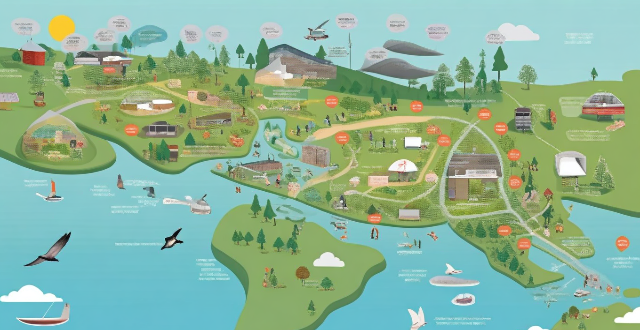
How do extreme weather events affect global climate change ?
Extreme weather events, such as hurricanes, floods, droughts, and heatwaves, have a significant impact on global climate change. They can exacerbate existing climate conditions and contribute to the overall warming of the planet by increasing greenhouse gas emissions, affecting ecosystems and biodiversity, disrupting agriculture and food production, and impacting human health and well-being. It is essential that we work together to mitigate the effects of extreme weather events and address the root causes of climate change to ensure a sustainable future for all.

What are the implications of climate change for future generations ?
Climate change has significant implications for future generations, including rising sea levels, extreme weather events, food security, and health impacts. Rising sea levels can lead to flooding, displacement of communities, and loss of habitat for marine life. Extreme weather events can cause loss of life, destruction of infrastructure, and long-term changes in ecosystem structure and function. Climate change can also affect global food production, particularly in regions that are already vulnerable to food insecurity. Changes in temperature and precipitation patterns can affect crop yields, pest and disease outbreaks, and water availability for agriculture. Additionally, climate change can have significant impacts on human health, including increased risk of infectious diseases, respiratory illnesses, and mental health problems. The challenges presented by climate change require urgent action from individuals, governments, and organizations around the world to mitigate its effects and ensure a sustainable future for all.

How do electric cars perform in cold weather conditions ?
Electric cars, while eco-friendly and cost-efficient, face challenges in cold weather, particularly affecting battery performance and range. Strategies like preconditioning and using warm garages can mitigate these issues. Cold weather also increases energy use for heating, but efficient practices can help manage this. Tire pressure and traction are other concerns that require attention. Despite these challenges, EVs maintain their quiet and smooth driving experience, even in cold conditions, with the advantage of instant torque beneficial in slippery situations.
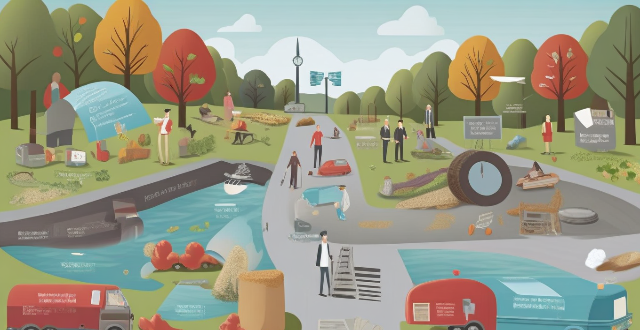
What are the implications of climate change negotiations for future generations ?
The implications of climate change negotiations for future generations are significant and multifaceted, affecting various aspects of life, including the environment, economy, society, and politics. Effective negotiations can lead to preserved natural ecosystems, mitigation of extreme weather events, job creation in renewable energy sector, reduction in energy costs, improved public health, enhanced quality of life, global cooperation, and leadership and innovation. These benefits highlight the importance of prioritizing the interests of future generations in climate change negotiations to ensure a sustainable and equitable world for all.

Can we trust climate models for future predictions ?
Climate models are designed to predict future changes in the Earth's climate based on scientific principles and past observations. Trust in these models depends on factors such as their scientific foundation, data quality, model complexity, intercomparison, historical validation, uncertainty quantification, and continuous improvement. While no model can perfectly predict the future, climate models offer valuable insights into potential future scenarios based on current knowledge and understanding. However, it is important to recognize their limitations and uncertainties when interpreting their results.

What is the difference between weather and climate ?
This text defines and differentiates between weather and climate. Weather is described as a short-term phenomenon, characterized by its variability, localized nature, and influence on daily activities. In contrast, climate is defined as a long-term pattern, distinguished by its stability, regional scope, and impact on ecosystems and agriculture. The text emphasizes the importance of understanding these differences for decision-making in various aspects of human life.

What measures can be taken to mitigate the impacts of extreme weather events ?
Mitigating the Impacts of Extreme Weather Events Extreme weather events can be devastating, but their impact can be mitigated through preparedness, response, and adaptation strategies. Preparedness measures include early warning systems, infrastructure resilience, and community planning. Response measures involve emergency services and information management. Adaptation measures encompass land use policies, sustainable practices, and ecosystem restoration. By implementing these measures, communities can become more resilient to extreme weather events and reduce the risk to human life and economic impact.

How does climate change influence weather patterns and extreme weather events ?
Climate change significantly affects weather patterns and increases the frequency and intensity of extreme weather events. It influences global wind patterns, changes in ocean currents, and variations in seasonal patterns. Moreover, it leads to more frequent and intense heatwaves, severe storms and hurricanes, extreme precipitation events, and droughts. These impacts highlight the urgent need for action to mitigate climate change and adapt to its effects.
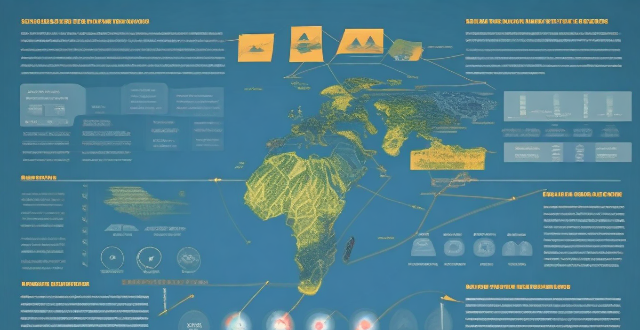
How does climate change influence the future of remote work and virtual employment ?
The article discusses the impact of climate change on the future of remote work and virtual employment. It states that rising temperatures, extreme weather events, and environmental concerns are driving factors for the shift towards remote work arrangements. As a result, there is an increasing demand for remote work options, technology advancements to support virtual employment, and a changing work culture that focuses on results rather than physical presence. The article concludes that embracing these changes can lead to a sustainable and efficient future of work.

How do weather conditions affect building safety during construction ?
The text discusses the impact of various weather conditions on building safety during construction. It highlights the risks associated with extreme heat, cold weather, rain and water, strong winds, snow and ice, and lightning and thunderstorms. The conclusion emphasizes the importance of monitoring weather forecasts and adjusting working procedures to ensure worker safety.

What are the implications of climate change for future generations, specifically children ?
Climate change poses significant challenges and threats to future generations, particularly children. The implications of climate change for children are multifaceted and far-reaching, affecting their health, safety, education, and overall well-being. Health implications include increased respiratory problems, spread of infectious diseases, and nutritional deficiencies due to extreme weather events and changing precipitation patterns. Safety risks involve natural disasters and heat stress, while education is affected by disruption of learning and limited access to educational resources. Overall well-being implications include mental health issues, loss of cultural heritage, and economic impacts on families and communities. Addressing these challenges requires urgent action to mitigate the effects of climate change and adapt to its inevitable consequences, ensuring a healthier, safer, and more equitable future for all children.

What are the potential long-term consequences of climate change for future generations ?
The potential long-term consequences of climate change for future generations include environmental, social, and economic impacts. Environmentally, rising sea levels can cause coastal erosion and loss of island nations, while extreme weather events like hurricanes and wildfires become more frequent. Biodiversity loss is also a major concern, with species extinction and the spread of invasive species disrupting ecosystems. Socially, food security is threatened by changes in crop yields and water scarcity, while health risks increase due to heat-related illnesses and the spread of diseases. Displacement and migration may lead to conflict and instability. Economically, decreased productivity in agriculture and fisheries, increased adaptation and mitigation costs, and job losses contribute to economic instability. Addressing climate change requires global cooperation and significant investments in both adaptation and mitigation strategies to ensure a sustainable future.

In what ways do extreme weather events, such as hurricanes and typhoons, impact the fishing sector ?
This text discusses the various impacts that extreme weather events, such as hurricanes and typhoons, have on the fishing sector. It outlines direct damage to fishing infrastructure like vessels, ports, and processing facilities, disruption of fishing operations due to safety concerns and loss of gear, environmental changes affecting fish populations, economic impact on fishermen and communities including loss of income, market disruptions, and recovery costs, and long-term implications for the industry such as shifting fishing patterns, policy changes, and sustainability efforts. It concludes by highlighting the importance of understanding these impacts and working together to develop strategies that can build resilience against future extreme weather events.

What are some examples of recent extreme weather events ?
This article discusses recent examples of extreme weather events that have caused significant damage to human life, property, and the environment. These include Hurricane Ida (2021), Australian Bushfires (2019-2020), California Wildfires (2020), European Heatwave (2019), Japanese Typhoon Hagibis (2019), and Indian Cyclone Amphan (2020). The article concludes by emphasizing the need for individuals, communities, and governments to take action to mitigate the effects of these events and adapt to changing weather patterns.

How does weather affect radio communication interference ?
The text discusses how weather conditions can impact radio communication interference. It lists various types of weather such as rainfall, fog, thunderstorms, snow, sunspots, wind, and humidity and explains how each type can affect radio signals. For example, raindrops can absorb and scatter radio waves, reducing the strength of the signal, while thunderstorms can produce static discharges that interfere with nearby frequencies. The text emphasizes the importance of considering these factors when planning and managing wireless communications networks.
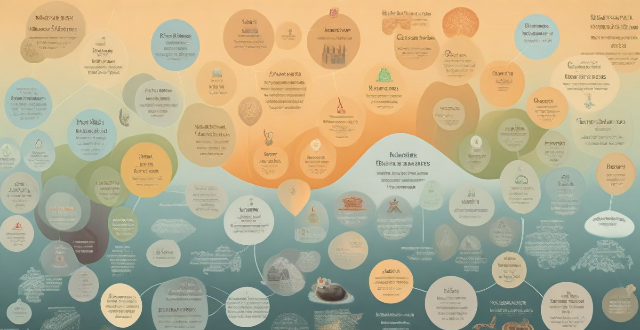
How does climate data analysis contribute to our understanding of extreme weather events ?
Climate data analysis is essential for understanding extreme weather events. It allows scientists to identify trends, make predictions, and assess the impacts of these events on people and ecosystems. Key aspects include long-term data collection, statistical analysis, modeling techniques, vulnerability assessments, and public education. This comprehensive approach helps us prepare for and mitigate the effects of extreme weather, ultimately enhancing our resilience and adaptability in a changing climate.
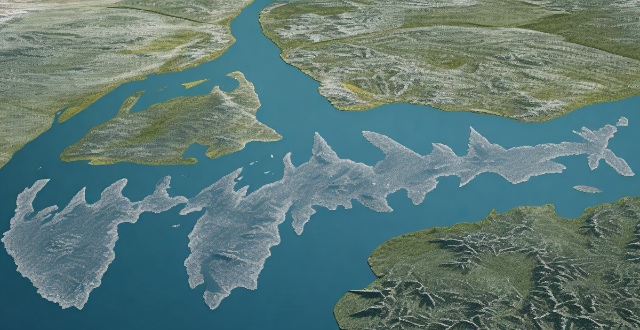
How do climate skeptics explain extreme weather events in the context of climate change ?
Climate skeptics present alternative explanations for extreme weather events, often challenging the scientific consensus on climate change. They argue that such events are part of natural variability, unrelated to human activities. Skeptics question the interpretation of climate data, suggesting that any increase in extreme weather is not statistically significant and that climate models have uncertainties. They propose alternative causes for weather patterns, such as land use changes and industrial pollution. Furthermore, they emphasize human resilience and adaptation through technology and economic growth as key to dealing with extreme weather. Overall, climate skeptics offer a range of arguments that differ from the prevailing scientific view on climate change.

How does weather affect traffic safety ?
Weather conditions significantly impact traffic safety, with adverse weather increasing the risk of accidents. Understanding how different weather conditions affect driving abilities and taking necessary precautions are essential for ensuring safety. Rain, snow, ice, fog, and wind all pose unique challenges to drivers, such as reduced visibility and slippery roads. To drive safely in these conditions, maintain vehicle readiness through regular maintenance and adjust driving habits by slowing down and increasing following distance. Additionally, being prepared for emergencies with an emergency kit and planning your route can further enhance safety. By prioritizing safety and adapting to weather conditions, drivers can significantly reduce the likelihood of accidents and ensure safer journeys for everyone on the road.
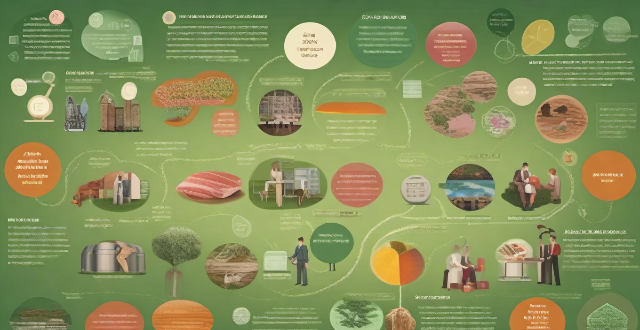
What policies can be implemented to reduce the number of climate refugees in the future ?
Policies to reduce the number of climate refugees in the future include investment in renewable energy, afforestation and reforestation, sustainable agriculture practices, coastal protection measures, and international cooperation and funding. These policies aim to mitigate the effects of climate change and prevent displacement of people due to climate change-related events.
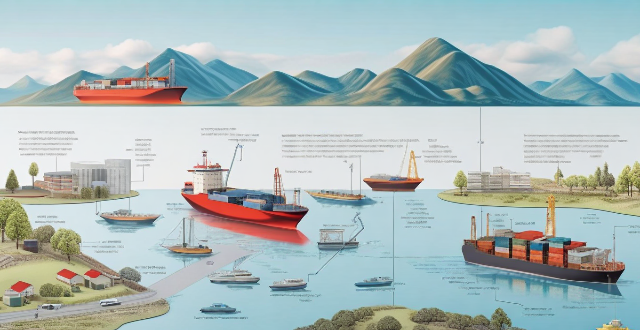
How can climate risk management help mitigate financial losses due to extreme weather events ?
Climate risk management is crucial for reducing financial losses from extreme weather. It involves identifying, assessing, and prioritizing climate-related risks, and developing strategies to manage and adapt to these risks. Organizations can reduce their exposure to high-risk areas, enhance resilience and preparedness, diversify risks, and invest in insurance and contingent finance mechanisms. By implementing effective climate risk management practices, organizations can mitigate the impact of extreme weather events on their operations and finances.

How does climate variability influence extreme weather events, such as hurricanes and droughts ?
Climate variability refers to the fluctuations in the Earth's climate system over time. The effects of climate variability are often seen in extreme weather events, including hurricanes and droughts. Climate variability can influence hurricanes by causing warmer ocean waters and changes in atmospheric circulation patterns. It can also affect droughts by changing precipitation patterns, increasing evaporation rates, and altering vegetation cover. As global temperatures continue to rise due to human activities, these extreme weather events are expected to become more frequent and severe.

What are the main causes of extreme weather events ?
Extreme weather events, such as hurricanes, tornadoes, floods, and droughts, are caused by a combination of natural climate variability, human activities, and changes in the Earth's climate system. Natural climate variability includes phenomena like El Niño and La Niña, which can cause extreme weather conditions around the world. Human activities, such as greenhouse gas emissions, land use changes, and pollution, also play a significant role in causing extreme weather events. Changes in the Earth's climate system, such as sea level rise, ocean acidification, and changes in atmospheric circulation patterns, can also contribute to extreme weather events. Addressing both the underlying causes and implementing adaptation strategies is important to mitigate the impacts of these events.